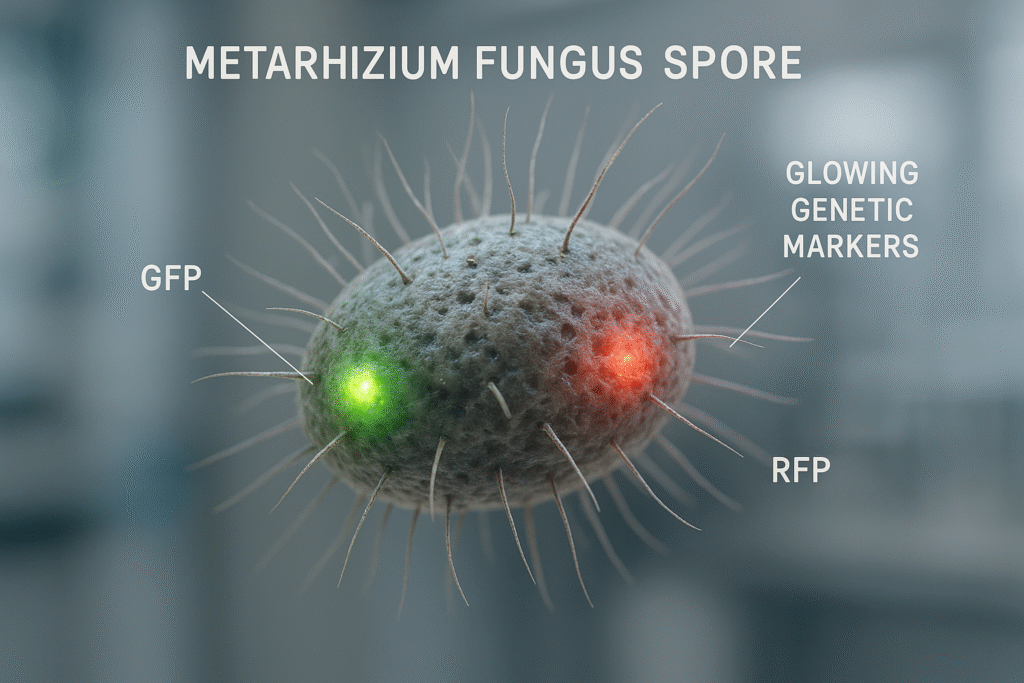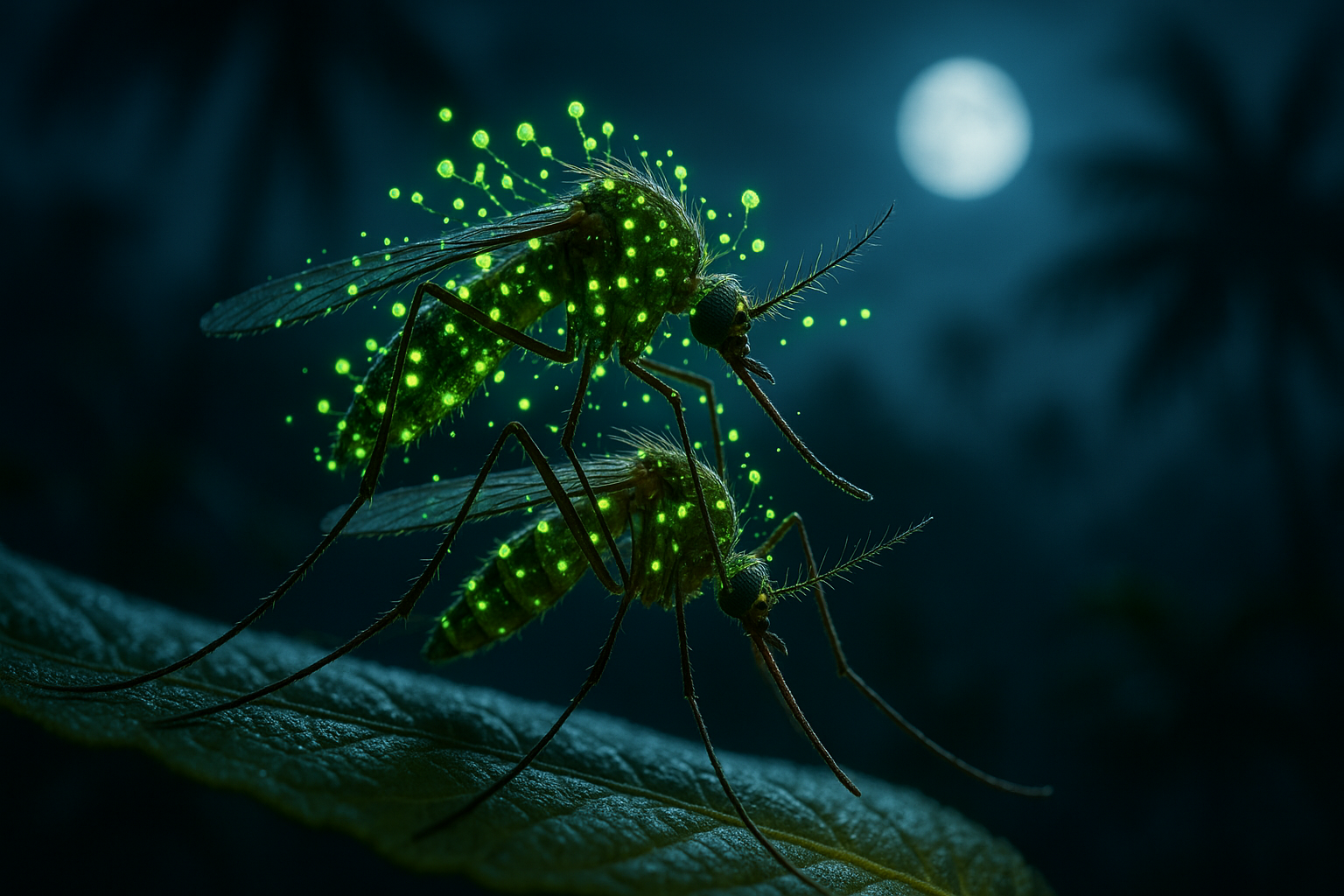Mosquitoes are more than a menace, they are the carriers of virulent illnesses such as malaria, dengue and Zika which take away the lives of millions of people every year. Scientific Reports published a breakthrough report, in which researchers offer a new method to target the mosquito population with transgenic fungi, which spread when the insects mate. This study, conducted by Etienne Bilgo and other scientists, examines one possible future solution to the mosquito-borne problems of disease-ravaged societies and this is through a new form of biological control. This is what you should know about this development of excitement.
The Problem of Mosquito and Present-day Issues
Such species of mosquitoes as Anopheles and Aedes cause diseases that kill millions of people all around the world. The conventional ways of control like insecticides, bed nets, and larvicides are disadvantaged. Resistance to insecticides is on the increase, environmental issues restrict liberal use of chemicals and the available methods are usually unable to tackle the problem of mosquitoes in varying environments. This has been a driving force that has seen scientists venture into biological controls such as the use of fungi such as Metarhizium that naturally infect and kill insects.
The twist in the study is that the engineered transgenic fungi has a game-changer element in that they produce a hybrid toxin option, which is further subsumed with a green fluorescent protein (GFP) to track it down, that can be transferred between male and female mosquitoes during mating. This has an advantage of using the natural mating habit of itself by transmitting a killer agent hence precise and environmentally friendly compared to other chemical pesticides.

The mechanism of Transgenic Fungi
The researchers have produced a transgenic strain of the fungi Metarhizium that causes death of mosquitoes more easily by expressing a hybrid toxin as opposed to the wild type fungus. The fungi get exposed to male mosquitoes and attach to their bodies as spores. Such spores are transferred during mating in the females causing infection and death. The wild-type fungi were also used in the study which included a red fluorescent protein (RFP) as control untreated fungi.
In the experiments the female mosquitoes survived poorly when mated with male mosquitoes infected with transgenic fungi when compared to those mated with the untreated males or with male mosquitoes infected with the wild fungi. The study survival curves (Fig. 1) showed that the engineered strain was more lethal as females exposed to transgenic fungi died quicker. The third test affirmed that the mating rates were not affected in a way that the fungi cannot spread without affecting the reproduction of the mosquitoes.
Good Outcomes and Challenges
The findings of the study have a promising potential of controlling mosquitoes. Both male and female mosquitoes placed in semi-field (Fig. 2) condition released fewer transgenic fungi that survived than their controls. The hybrid toxin has worked together with GPS tracking making it very effective and spores are easily transferred in a mating process. This is comparable to a sexually transmitted disease (STD) in the mosquitoes hence it is a new method of population control.
Various benefits of the method are as follows:
Targeted Delivery: The fungi are delivered toward female mosquitoes where most of diseases are transmitted due to the mating behavior.
Environmentally Friendly: As opposed to chemical insecticides, fungal biopesticides are eco-friendly with no probability of harming the non-target species.
Resistance Management: Transgenic fungi has a potential of slowing resistance, since the mode of action of the organism against mosquitoes is a new mechanism, which is not the same as those of chemical insecticides.
Scalability: The approach can fit into the current control programs which can be used like the release of treated males within the affected regions.
The paper also sheds light on the aspect of mating by mosquitoes as the production of viable spores of fungus in copulation leads to the analysis of sex encounters and better strategies of control of transmitted diseases.
Problems and Future Prospects
On the one hand, the results are thrilling; on the other, they are still facing problems. The testings took place under control and semi-field conditions thus field-trials are necessary in order to reach the determination of the efficacy in reality. The extrinsic factors, including the level of humidity and temperature, may influence the viability of fungal spores. Also, it is also important to make sure that the fungi are only specific to the mosquito wasn t it that killed mosquitoes but also have no effect on beneficial insects. The scientists observe that, additional improvement of transgenic fungi, Juno enhance potency and specificity.
There are also regulatory and moral issues that are overshadowing the whole process. Any introduction of transgenic organisms needs to be supervised properly in order to avoid unforeseen ecological effects. The team stresses that safety must have the highest level of testing, and stakeholders should participate prior to widespread introduction.
Broader Applications
Other than mosquito control, the technology may provide a model to apply in similar pest species. Application of transgenic fungi in agriculture and public health as a biopesticide brings in the prospect of innovative solutions to pests management. The data (including methods and codes) of the study is released at GitHub, which invites subsequent studies and cooperation.
What is the importance of this?
Disease that propagate by mosquitoes are a world health catastrophe and malaria alone has resulted to more than 400000 deaths each year according to the WHO records. Insecticide resistance is an issue that makes the emergence of new methods even more pressing. This fungal method may be used in addition to other available means such as the genetically modified mosquitoes or the Wolbachia-based strategy to provide a multi-facet assault on the population of the mosquitoes.
Looking Ahead
Field experiments will further work to ensure that the method succeeds in other ecosystems and test the fungi until they are lethal in their efficacy and harmlessness. The involvement of the community and proper communication will be one of the most relevant aspects in terms of community trust. With the world dealing with climate-induced expansions of mosquito habitats, such innovations are of great importance to world health.
References:
Bilgo, E. et al. (2025). Transmission of transgenic mosquito-killing fungi during copulation. Scientific Reports. https://doi.org/10.1038/s41598-024-83242-5
Lovett-Lab GitHub: Mosquito-STD-EPF Project
WHO: Malaria facts and statistics – https://www.who.int/news-room/fact-sheets/detail/malaria

